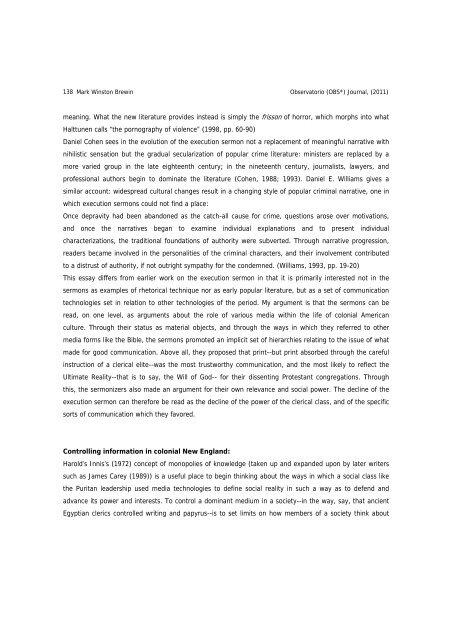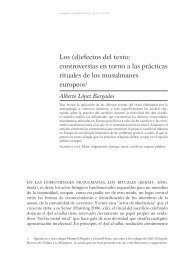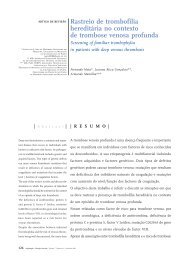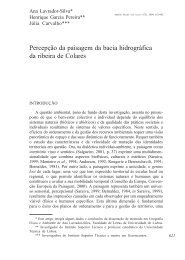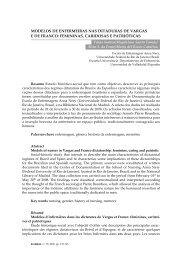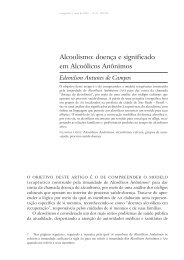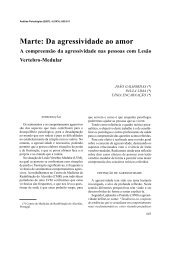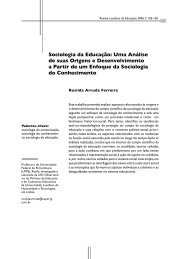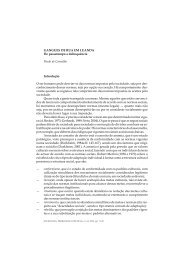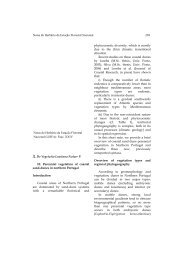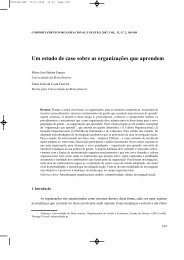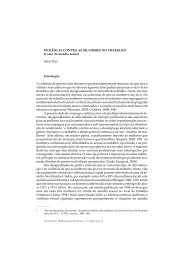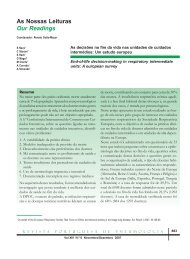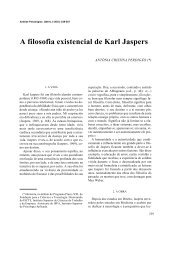The New England Execution Sermon: Texts, Rituals, and ... - SciELO
The New England Execution Sermon: Texts, Rituals, and ... - SciELO
The New England Execution Sermon: Texts, Rituals, and ... - SciELO
You also want an ePaper? Increase the reach of your titles
YUMPU automatically turns print PDFs into web optimized ePapers that Google loves.
138 Mark Winston Brewin Observatorio (OBS*) Journal, (2011)<br />
meaning. What the new literature provides instead is simply the frisson of horror, which morphs into what<br />
Halttunen calls “the pornography of violence” (1998, pp. 60-90)<br />
Daniel Cohen sees in the evolution of the execution sermon not a replacement of meaningful narrative with<br />
nihilistic sensation but the gradual secularization of popular crime literature: ministers are replaced by a<br />
more varied group in the late eighteenth century; in the nineteenth century, journalists, lawyers, <strong>and</strong><br />
professional authors begin to dominate the literature (Cohen, 1988; 1993). Daniel E. Williams gives a<br />
similar account: widespread cultural changes result in a changing style of popular criminal narrative, one in<br />
which execution sermons could not find a place:<br />
Once depravity had been ab<strong>and</strong>oned as the catch-all cause for crime, questions arose over motivations,<br />
<strong>and</strong> once the narratives began to examine individual explanations <strong>and</strong> to present individual<br />
characterizations, the traditional foundations of authority were subverted. Through narrative progression,<br />
readers became involved in the personalities of the criminal characters, <strong>and</strong> their involvement contributed<br />
to a distrust of authority, if not outright sympathy for the condemned. (Williams, 1993, pp. 19-20)<br />
This essay differs from earlier work on the execution sermon in that it is primarily interested not in the<br />
sermons as examples of rhetorical technique nor as early popular literature, but as a set of communication<br />
technologies set in relation to other technologies of the period. My argument is that the sermons can be<br />
read, on one level, as arguments about the role of various media within the life of colonial American<br />
culture. Through their status as material objects, <strong>and</strong> through the ways in which they referred to other<br />
media forms like the Bible, the sermons promoted an implicit set of hierarchies relating to the issue of what<br />
made for good communication. Above all, they proposed that print--but print absorbed through the careful<br />
instruction of a clerical elite--was the most trustworthy communication, <strong>and</strong> the most likely to reflect the<br />
Ultimate Reality--that is to say, the Will of God-- for their dissenting Protestant congregations. Through<br />
this, the sermonizers also made an argument for their own relevance <strong>and</strong> social power. <strong>The</strong> decline of the<br />
execution sermon can therefore be read as the decline of the power of the clerical class, <strong>and</strong> of the specific<br />
sorts of communication which they favored.<br />
Controlling information in colonial <strong>New</strong> <strong>Engl<strong>and</strong></strong>:<br />
Harold’s Innis’s (1972) concept of monopolies of knowledge (taken up <strong>and</strong> exp<strong>and</strong>ed upon by later writers<br />
such as James Carey (1989)) is a useful place to begin thinking about the ways in which a social class like<br />
the Puritan leadership used media technologies to define social reality in such a way as to defend <strong>and</strong><br />
advance its power <strong>and</strong> interests. To control a dominant medium in a society--in the way, say, that ancient<br />
Egyptian clerics controlled writing <strong>and</strong> papyrus--is to set limits on how members of a society think about


